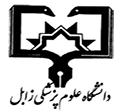(2018) The Role of Immune System in Thalassemia Major: A Narrative Review. Journal of Pediatrics Review. p. 8. ISSN 2322-4398
Full text not available from this repository.
Abstract
Context: Thalassemia is a genetic disorder of hemoglobin production. Patients with thalassemia major (TM) require regular blood transfusions to keep a compatible hemoglobin level for oxygenating organs. These patients suffer from different complications such as infections, autoimmunity and alloimmunization due to transfusion. Such complications link the immune system to TM pathogenesis. In the present study, we have reviewed the latest data available on interactions of TM pathophysiologic determinants and immune system components. Evidence Acquisition: A comprehensive search was performed on PubMed, Scopous, and Web of Knowledge databases using keywords thalassemia, immune system, autoimmune, alloimmune, adaptive immunity, innate immunity, complications, and immunesenescnce. Results: It seems that persistent antigenic stimulation and oxidative stress from excessive iron are the two main pathophysiologic factors of TM impacting the immune system. Regarding innate immunity, functional activity of neutrophils, and natural killer cells (NKCs) is decreased in TM. On the other hand, higher levels of TNF-alpha and IL-1 beta, IL-6, IL-8, and C-reactive protein proinflammatory cytokines have been observed in the serum of patients. TM patients have demonstrated higher ratios of regulatory B lymphocytes (CD19+, CD38+, CD24+), helper T cells, suppressor T cells, and T regulatory (CD4+/CD25+/Foxp3+) lymphocytes. TM patients have shown significant higher levels of IgA immunoglobin respective to normal counterparts that may predispose them to diabetes and coeliac disease. Immune cells, however, rendered lower than optimal activity in TM patients, which may be due to nutritional insufficiencies. Potential relationships have been suggested between immune system and various thalassemia compilations including heart infraction, hypertension, atherosclerosis, diabetes, thyroid dysfunction, and osteoporosis. Conclusions: Immune genetic determinants may be involved in modulating the clinical picture of TM. TM patients generally represents with higher immune cell counts, likely as a result of persistent antigenic challenge from blood transfusions. However, these patients face compromised immune cell functions. The role of immunologic interactions in pathogenesis of TM needs to be further divulged in future studies.
| Item Type: | Article |
|---|---|
| Keywords: | Beta-Thalassemia Immunity Immunosenescence Erythroblastosis Narrative Review regulatory t-cells beta-thalassemia hepatitis-c nonsplenectomized patients immunoglobulin levels lymphocyte subsets blood-transfusion peripheral-blood oxidative stress liver fibrosis Pediatrics |
| Divisions: | |
| Page Range: | p. 8 |
| Journal or Publication Title: | Journal of Pediatrics Review |
| Volume: | 6 |
| Number: | 2 |
| Identification Number: | 10.5812/jpr.14508 |
| ISSN: | 2322-4398 |
| Depositing User: | مهندس مهدی شریفی |
| URI: | http://eprints.zbmu.ac.ir/id/eprint/3857 |
Actions (login required)
 |
View Item |



